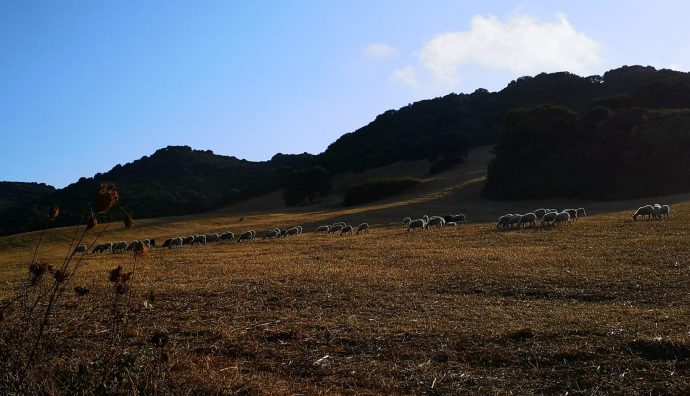Spending some time watching a flock is a privilege – not just because it means we’re on vacation.
Often the human being and his behavior are assimilated to sheep. Why? And above all: what can men and women learn from a flock?
Sheep are quiet, sociable animals. They have a strong predisposition to live in groups, quite easily including other sheep that should be added to the flock – provided there is food for everybody.
Although living and moving in groups, they are very autonomous: they know what is good for them to eat and what is not; they know where it is best to shelter from bad weather and lightning; they recognize the faces and sounds of their flock. However, if some members are turned away from the flock, they complain with loud bleats. Autonomous yes, yet better united.
They have an innate sense of protection and care towards lambs.
Strictly speaking, they may not need the self-interested care of a shepherd. Yet sheep are very bond to their shepherd – and to his dogs. They know that the shepherd is there to protect them, to look after them. They feel it.
And after all, many times we have heard shepherds claiming that they would die to protect their lambs.
Merged, the lives of the flock and the shepherd do not speak of an economic purpose or of subsistence. It would be too trivial.
They speak of a dimension of life where the boundary between “me” and “us” is at the same time very clear and diluted.
Sheep sense whether the shepherd is nervous or happy. The shepherd hears and sees if the sheep are well.
A flock without a shepherd is an indistinct mass of “us”. A shepherd, without sheep, is not only not a shepherd but he is an enormously lonely person.
Shepherd and flock walk together, yet with different levels and purposes. The shepherd knows what is good for his flock because he knows it, sees its inclinations and leads it where it is best for all. And the flock follows him, because it exercises that virtue so precious and rare which is meek trust.
The times we live in often lead us to consider ourselves all self-determined and self-determining shepherds.
They make us thinking that being part of a flock is dishonorable, childish, harmful.
Yet, the flock is there, silent witness waving in the pasturages, indicating the possibility of a world where it is possible to reconcile individuality and group, leadership and obedience, care and command.
Once upon a time, a dictator, in WWII, repeated “Better to live a day as a lion than a hundred as a sheep”.
Maybe he had never really seen a flock.

